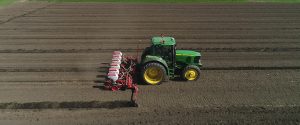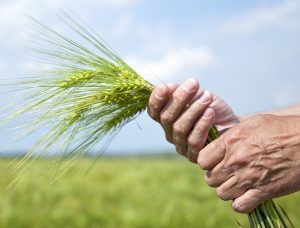According to professional literature, the optimal deadline for autumn sowing of wheat is from October 5 to 25, with the possibility of extension until October 10-15. November, but with a significant reduction in yield. Climatic changes, especially a drought that lasted two to three months, can significantly change these deadlines.
In mid-September, heavy rains improved the condition of the fields, but the next sowing period seems uncertain. At the same time, farmers face high costs of seeds, fertilizers, plant protection products and fuel, which makes it difficult to predict the areas that will be planted with wheat this fall. Last year, 625,000 hectares were under wheat, and this year 2.9 million tons were harvested, which is 16% less than the previous season. Farmers’ expectations of an increase in purchase prices were not fulfilled, and in mid-September the price of wheat was low, which did not cover the invested costs.
In addition, a big problem is the growing share of undeclared seeds, the so-called “tavankuše”, which in recent years accounts for as much as 60% of the sowing of winter wheat. Undeclared seed is untested, stored in inadequate conditions, introduces diseases into the soil and is not selected. All these factors lead to lower yields and an increased need for herbicides. The use of certified seed is important for achieving optimal yields and reducing the negative consequences for purchasing and processing wheat. The proposal for a subsidy of 17,000 dinars per hectare for the use of certified seeds is positive, but many believe that this help will arrive too late.

Setva ili ne – kakvo seme koristi?
Agriculture has its own time constraints, and state decisions that are important for sowing should be made immediately after the harvest, not after sowing has begun. Due to inadequate decision-making, farmers often feel the consequences, because they do not have reliefs and subsidies on time. The transition and privatization of the processing industry without the participation of primary producers has created conflicting interests between purchasers and farmers, which makes it difficult for small producers to survive. In agriculturally developed countries, this gap has been overcome by legal solutions that support all participants in the food production chain.
Wheat sowing is important not only for farmers’ income, but also for crop rotation and food security. The quality of wheat depends on the use of declared seeds and investment in agricultural machinery. Subsidies and strategic incentives, such as the announced 17,000 dinars per hectare, are part of the necessary activities. It is also important to focus on export and domestic processing, as well as the development of animal husbandry that follows similar principles.

This year, Serbia will have enough strategic agricultural products for domestic needs and export. But problems and challenges in agriculture are present, including low prices and unfavorable climate. Farmers are hoping for better conditions through changes in incentive policy and a new agricultural strategy. In this way, they would overcome the current crisis and ensure long-term sustainability.
Source: boljazemlja.com


